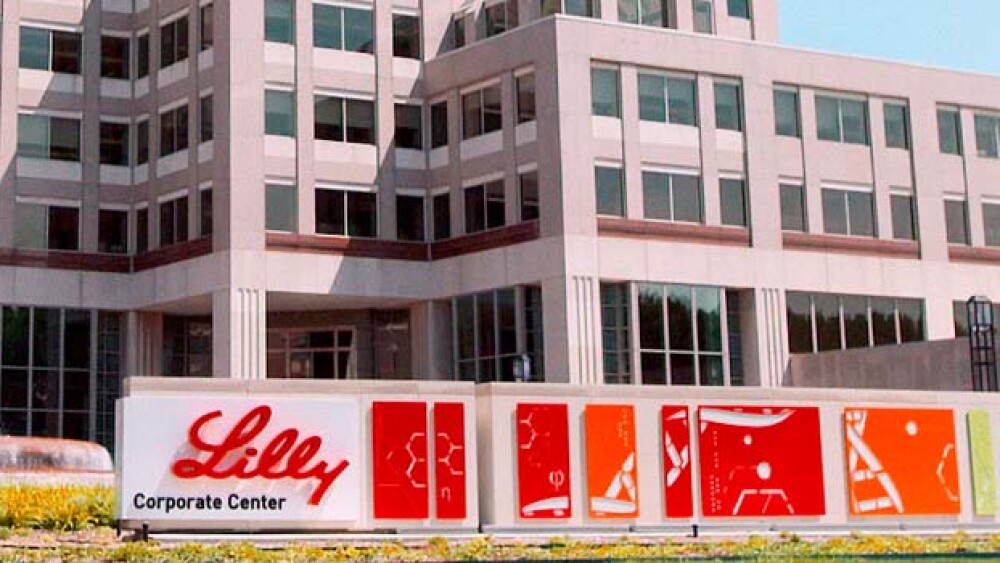If the company does sell some older assets, it could use the funds to support development of high-growth assets in immuno-oncology.
Eli Lilly may be eying the sale of $200 or $300 million worth of off-patent drug assets in China to raise funds to support the development of high-growth products at home, according to reports.
This morning Bloomberg reported that Indianapolis-based Eli Lilly is working with advisors in China to gauge interest in older medications aimed at the treatment of central nervous system diseases, as well as some antibiotics. Bloomberg noted that its sources are unnamed and the potential sale of Eli Lilly products has not been settled. Eli Lilly did not provide comment about the potential sale, Bloomberg said, and also noted that it may not sell anything. It was not reported what entities may be in talks with Eli Lilly, whether or not it is a China-based pharmaceutical company, or some other business.
Earlier this year, Eli Lilly secured its toehold in China, a market that is expected to see exponential industry growth by 2022, through a partnership with China’s National Center for Cardiovascular Diseases. The partnership is across four strategic initiatives that are expected to advance the understanding of type 2 diabetes and related complications, such as cardiovascular disease (CVD). When announcing the plan in August, Eli Lilly said it hopes the partnership will improve the care for diabetes patients with these conditions. In China, diabetes is a growing concern, with about 11 percent of the population having developed the disease. Additionally, one in three people in China is considered pre-diabetic. In that country, less than one-third of people with diabetes receive treatment, Lilly added.
The potential sale of the assets in China will help Eli Lilly focus on areas that it sees have greater growth potential, such as oncology. Eli Lilly has been forging ahead in this field, striking partnerships with various companies to advance potential treatments. Earlier this month, Eli Lilly and NextCure struck a deal focused on developing immuno-oncology treatments through the use of NextCure’s proprietary FIND-IO platform. NextCure’s platform identifies novel cell surface molecular interactions involved in immune responses in the tumor microenvironment and other disease sites.
Also this year, Lilly acquired ARMO BioSciences for $1.6 billion, and AurKa Pharma. ARMO develops cytokine drugs, with its lead Phase III asset focused on pancreatic cancer and AurKa is developing drugs that target Aurora kinases, which are enzymes involved in the growth of cancer cells.
Also this year, Lilly had its animal health business, Elanco, go public with a $1.7 billion initial public offering.
With the divestment of assets, Lilly joins a number of other pharma companies, such as Pfizer and AstraZeneca, which are trimming products considered dead weight in order to focus on other growth areas.





